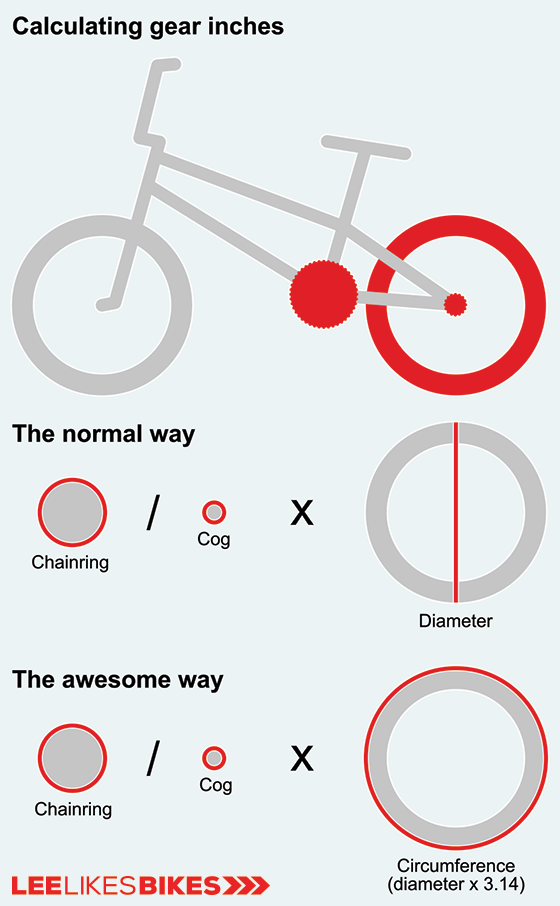Calculate gear inches like you give a f#$%

Traditional gear-inch calculations divide chainring by cog, then multiply by wheel diameter. The resulting number lets you compare gearing combinations, but it has no bearing on real life.
If you’re gonna be a nerd, be an informed nerd.
The normal way to calculate gear inches:
(chainring / cog) x diameter
The awesome way:
(chainring / cog) x (diameter x 3.14)
This shows you how far your bike travels with each turn of the cranks.
Don’t forget pi!

Have fun out there,
Lee
This is an homage to Thug Kitchen. Eat like you give a f#$%.
Know more. Have more fun!
Join the leelikesbikes mailing list:

Leave a Reply
Want to join the discussion?Feel free to contribute!